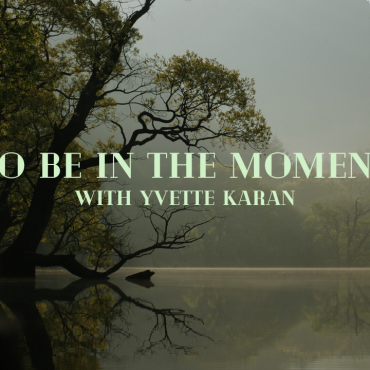Have you ever noticed what happens to your body when you feel Stressed, does it cause shortness of breath, tense muscles, headaches, panic attacks, sweaty palms or simply make your problems seem worse?
When an event happens that triggers you to feel stressed, your body releases stress hormones that instigate your natural “fight or flight” response, our prehistoric survival mechanism to protect us from danger. It is these hormones which are responsible for tightening your muscles, increasing your heart rate, and quickening your breath. All to increase your alertness and prepare your body to either defend you against the perceived danger or run away from it. As these physiological responses happen to non-life threatening events where you no longer need to fight or run you have no release …without a release your stress levels increase, heightening feelings of anxiety and panic and so the cycle is repeated.…
…being anxious tightens the muscles that help you breathe, and you start to breathe faster and struggle to catch your breath. This is the same for when you get angry or frustrated – emotions which the body translate as stress. Have you ever noticed that whilst stress may seem to be limited to the mind, it also shows through the body even when you have not mentally recognised a stimulant for stress?
Thankfully we have been gifted with a very simple tool to help inhibit our body’s natural stress response…our breath…but can the key really be as simple as learning and training yourself to harness your breath fully?! We breathe all the time right!…but there is a difference between breath with awareness provoked voluntarily with thought and breath without.
It is true that breathing is generally a simple thing for our body to do, something which we do naturally. It is important however to pay attention to how you are breathing. As shown, your breathing patterns can indicate what your body is doing, even when it seems not to match up with your mind, and is especially significant when it comes to experiencing stress. Certain breathing exercises can help to reduce your body’s reaction to stress and bring clarity of mind – a simple task that when paid attention to, can help relax your body and help you move forward through otherwise potentially stressful situations freely.
You see your natural, physical response to a stressful trigger (the “fight or flight” response) is controlled by part of your involuntary nervous system (Autonomic Nervous System) known as your sympathetic nervous system. It is this system which is responsible for increasing your heart rate, blood pressure and blood sugar to help you perform under stress. Conversely, your parasympathetic nervous system (also part of your involuntary nervous system) does the opposite, inducing the “rest and digest” response after the perceived threat has passed, bringing the body’s reactions back to equilibrium. This is significant as the mind’s perception of stress can trigger the body to react in a fight or flight response, changing our breathing patterns and heart rate until they seem to be out of our own control – regulating your breath voluntarily can break the cycle and help instigate your body’s “rest and digest” response. Therefore certain breathing exercises can help to calm the body and in turn your mind in the face of stress.
Practicing breathing exercises and bringing awareness to your breath daily helps train your body to use this response more naturally when faced with potential stress of a non-life threatening nature. Helping you to remain calm under pressure, build strong relationships and meet deadlines.
We regularly teach our students, mentees and clients to connect to their breath and find it common place for many to only breathe in the upper section of their chest indicating a shortened fast breathing pattern – part of the fight or flight – as opposed to a deep full relaxing breath. Directional breathing is great method to help relieve this. TIP: bring a focus to your “belly” as you breathe, ensure your abdomen expands as your breathe in and contracts as you breathe out. If you find this tricky then this is definitely something that will be useful to you so stick with it!



